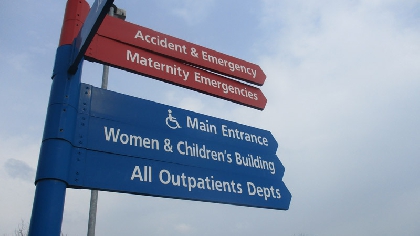
Hospitals in the North West region were placed on high alert 32 times through the 2017-18 winter.
All 32 alerts were recorded in the Cheshire and Merseyside area.
The Operational Pressures Escalation Levels (Opel) system measures the extent of the pressure on hospitals.
The highest level of pressure is known as "Opel 4" meaning "a potential for patient safety to be compromised" and the organisation is "unable to deliver comprehensive care."
In 2016-17, there were only two "Opel 4" recordings, marking a sharp increase in the pressure exerted on the NHS.
There has also been a 418% increase in the number of "Opel 3" alerts from 206 in 2016-17 to 1,067 in 2017-18.
"Opel 3" indicates that "there is major pressure compromising patient flow and continues to increase".
NHS England states that "prolonged bad weather" and "a rise in severity of illness" has caused the increase of high alerts over winter.
Marion Nash, form Lancashire who waited five hours in Blackpool Victoria's A&E said:
It was "absolute chaos" and there were "no beds, people just in corridors".
Staff were "absolutely run off their feet", but it was not their fault as "there just isn't enough staff and not enough beds".
Director of Operations and Performance at St Helens and Knowsley Teaching Hospitals Trust said the "whole health system is struggling."
There is "an issue around actually filling primary care vacancies" in the area, which "puts that additional demand on the GPs".
BBC North West health correspondent Gill Dummigan suggests that the A&E departments act as barometer which measures pressure levels for the NHS as a whole.
The increasing ageing population also means we need more healthcare for the elderly, and when they are ready to come out of hospital there is often a lack of aftercare in the community.
Therefore, there are fewer vacant beds on wards ,so A&E beds continue to be occupied, slowing down the process of patients in and out of hospitals.
So, until we find a more effective way of dealing with the health issues of the elderly, future crisis with A&E departments will continue to occur.
A spokesman for NHS England said the region's hospitals were "under significant pressure" and "acted promptly to help free up beds".

 Have your two and three year olds flu vaccinated now
Have your two and three year olds flu vaccinated now
 Man convicted of sexually assaulting a woman in Winsford
Man convicted of sexually assaulting a woman in Winsford
 Warning issued following reports of a potential car meet in Alderley Edge
Warning issued following reports of a potential car meet in Alderley Edge
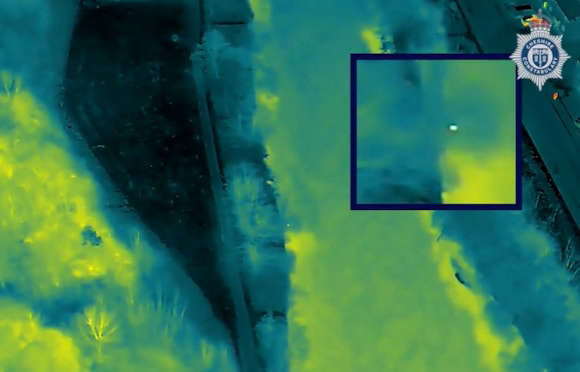 Constabulary's Drone Unit assist in rescuing man from River Weaver
Constabulary's Drone Unit assist in rescuing man from River Weaver
 Appeal for information following indecent exposure in Macclesfield
Appeal for information following indecent exposure in Macclesfield
 Macclesfield player Ethan McLeod passes away after car accident
Macclesfield player Ethan McLeod passes away after car accident
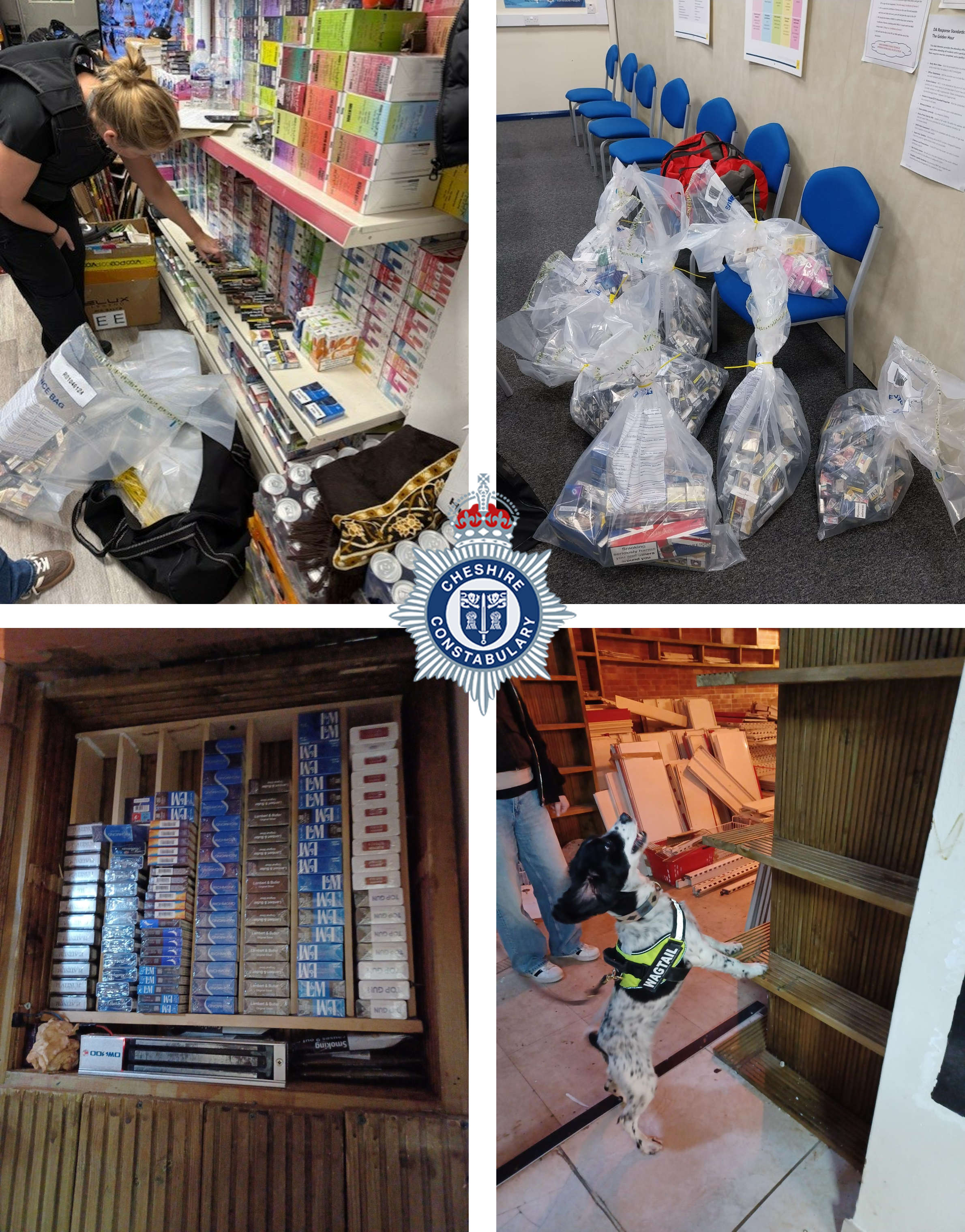 50,000 illegal cigarettes seized, shops closed and arrests made during immigration crime operation
50,000 illegal cigarettes seized, shops closed and arrests made during immigration crime operation
 Council confirms new three-year provision to strengthen domestic abuse support
Council confirms new three-year provision to strengthen domestic abuse support
 North Wales storage firm helps Crewe food bank meet soaring need
North Wales storage firm helps Crewe food bank meet soaring need
 BUXTON OPERA HOUSE ANNOUNCES SLEEPING BEAUTY AS ITS 2026 PANTOMIME
BUXTON OPERA HOUSE ANNOUNCES SLEEPING BEAUTY AS ITS 2026 PANTOMIME
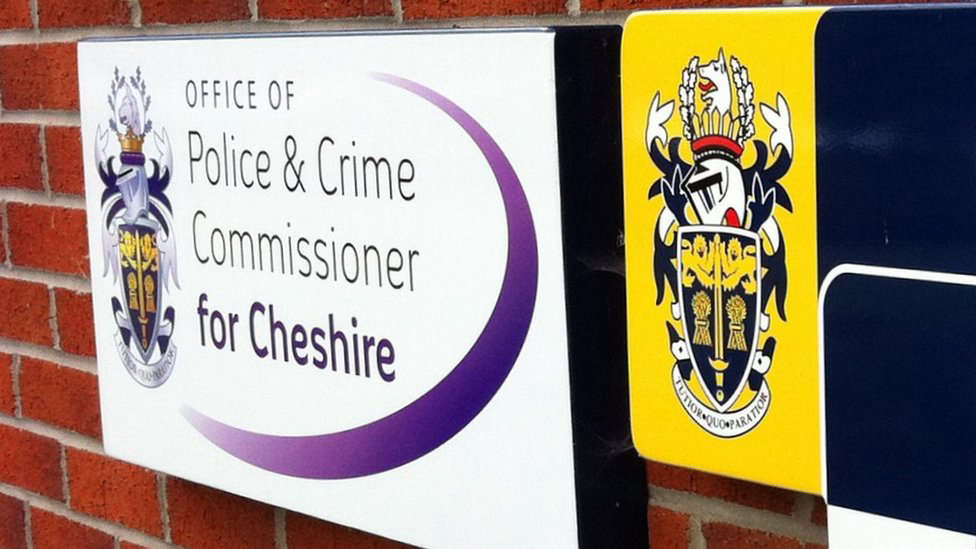 A message from the Cheshire Police and Crime Commissioner
A message from the Cheshire Police and Crime Commissioner
 Context partners with local disabled children’s charity Friends for Leisure
Context partners with local disabled children’s charity Friends for Leisure
 My CWA awarded £10,000 as part of Constabulary’s Christmas charity initiative
My CWA awarded £10,000 as part of Constabulary’s Christmas charity initiative
 Santa’s Reindeer Bring Christmas Magic to Beech Hall School
Santa’s Reindeer Bring Christmas Magic to Beech Hall School
 Local health and care leaders urge eligible residents to get their flu jab
Local health and care leaders urge eligible residents to get their flu jab
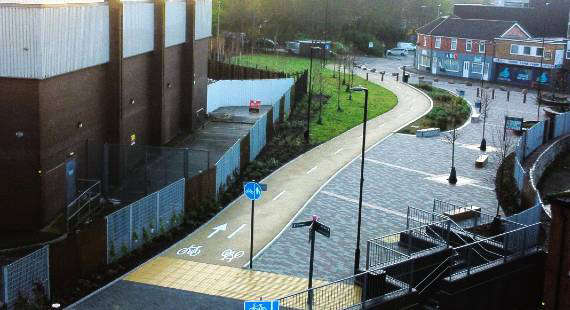 Cheshire East becomes North West’s only authority to improve Active Travel rating
Cheshire East becomes North West’s only authority to improve Active Travel rating
 Changes to bin collections announced for over festive period
Changes to bin collections announced for over festive period
 Generous contractors donate Christmas tree to Macclesfield Hospital
Generous contractors donate Christmas tree to Macclesfield Hospital
 World of Wedgwood to Feature on Celebrity MasterChef
World of Wedgwood to Feature on Celebrity MasterChef

